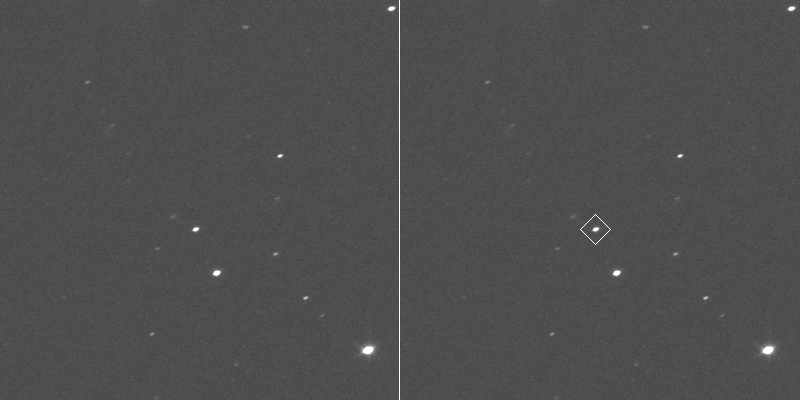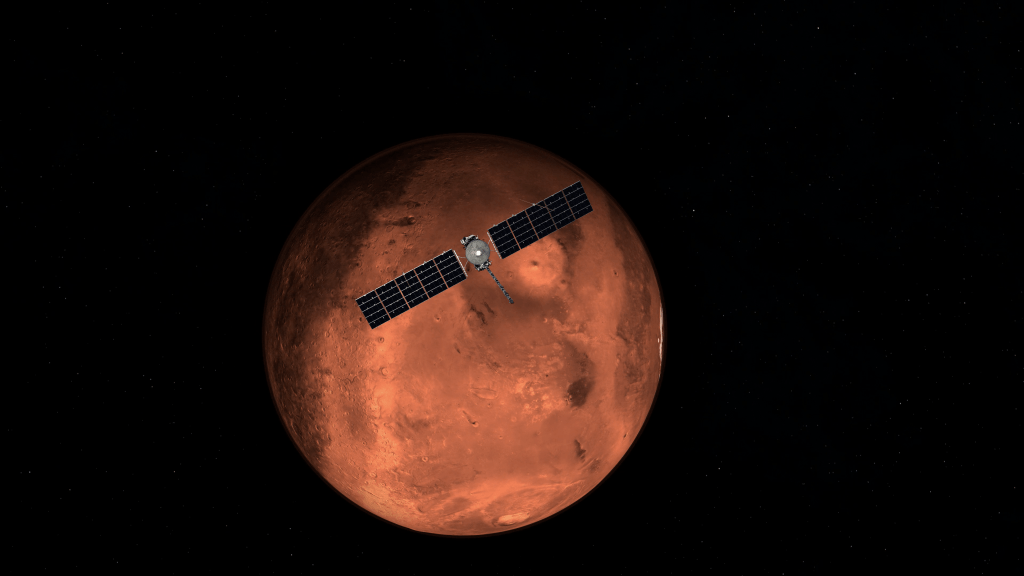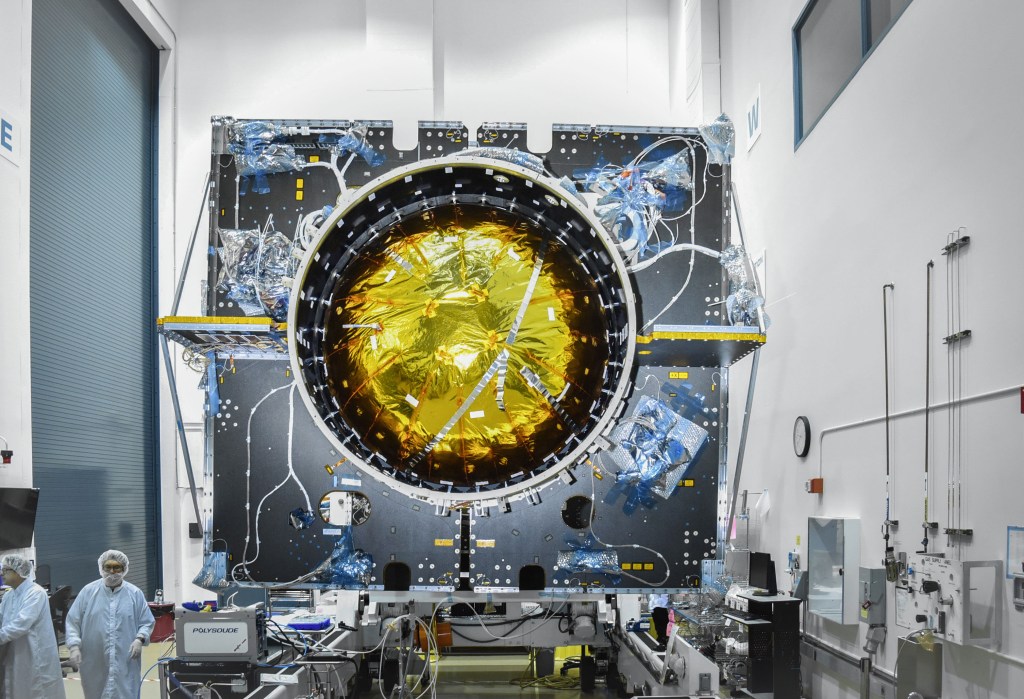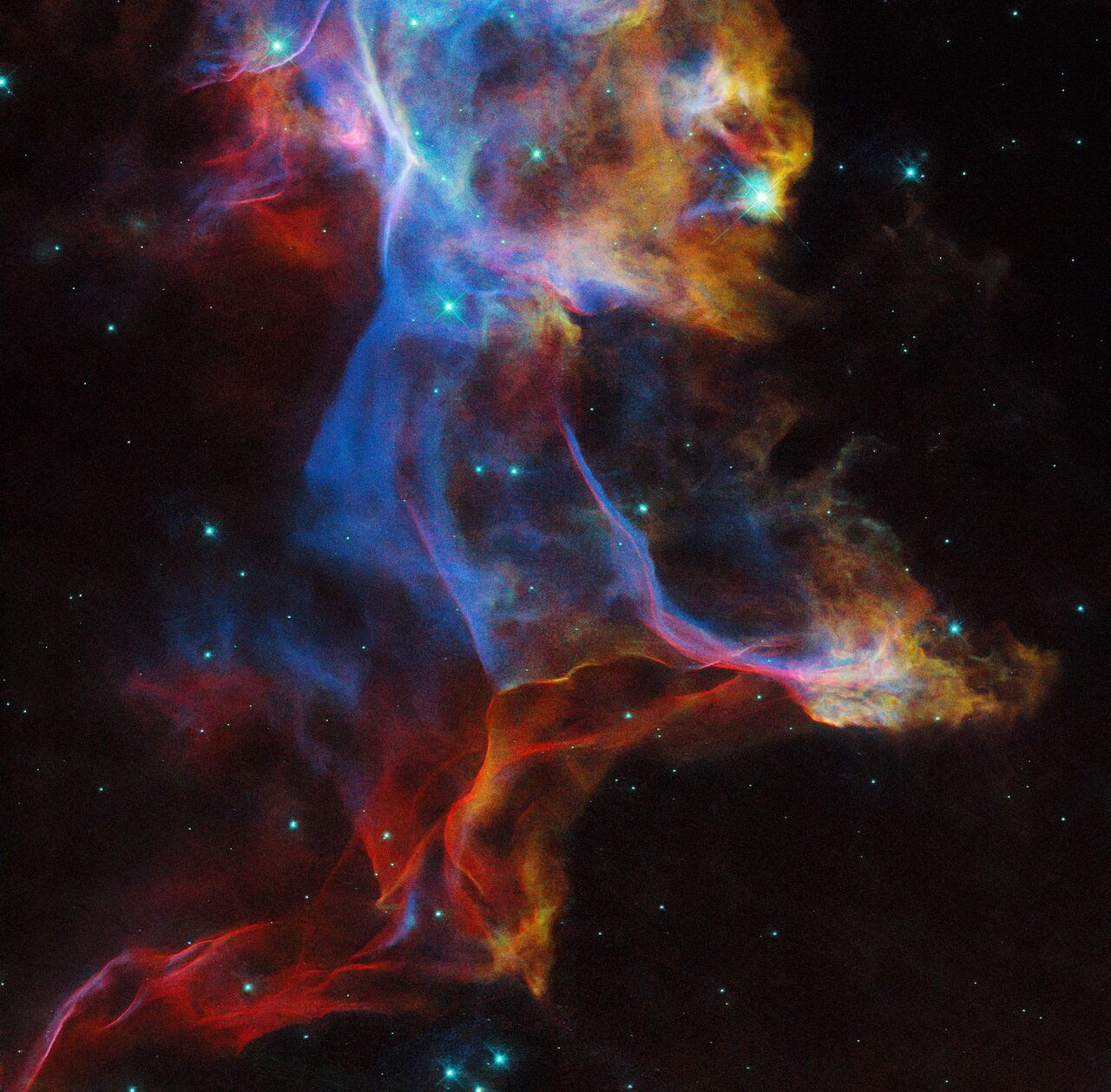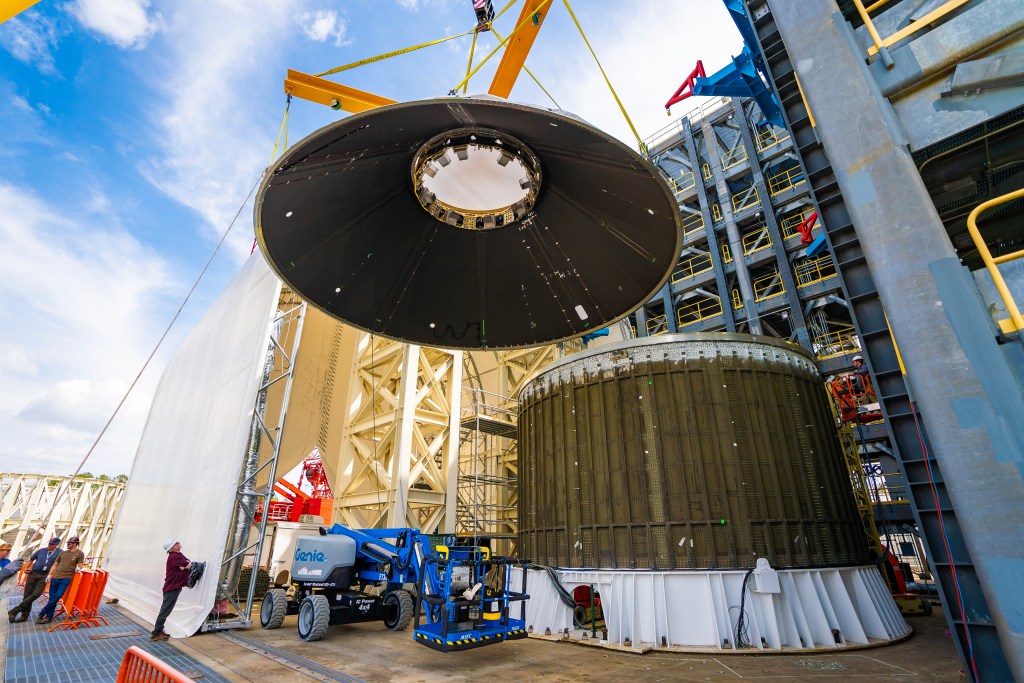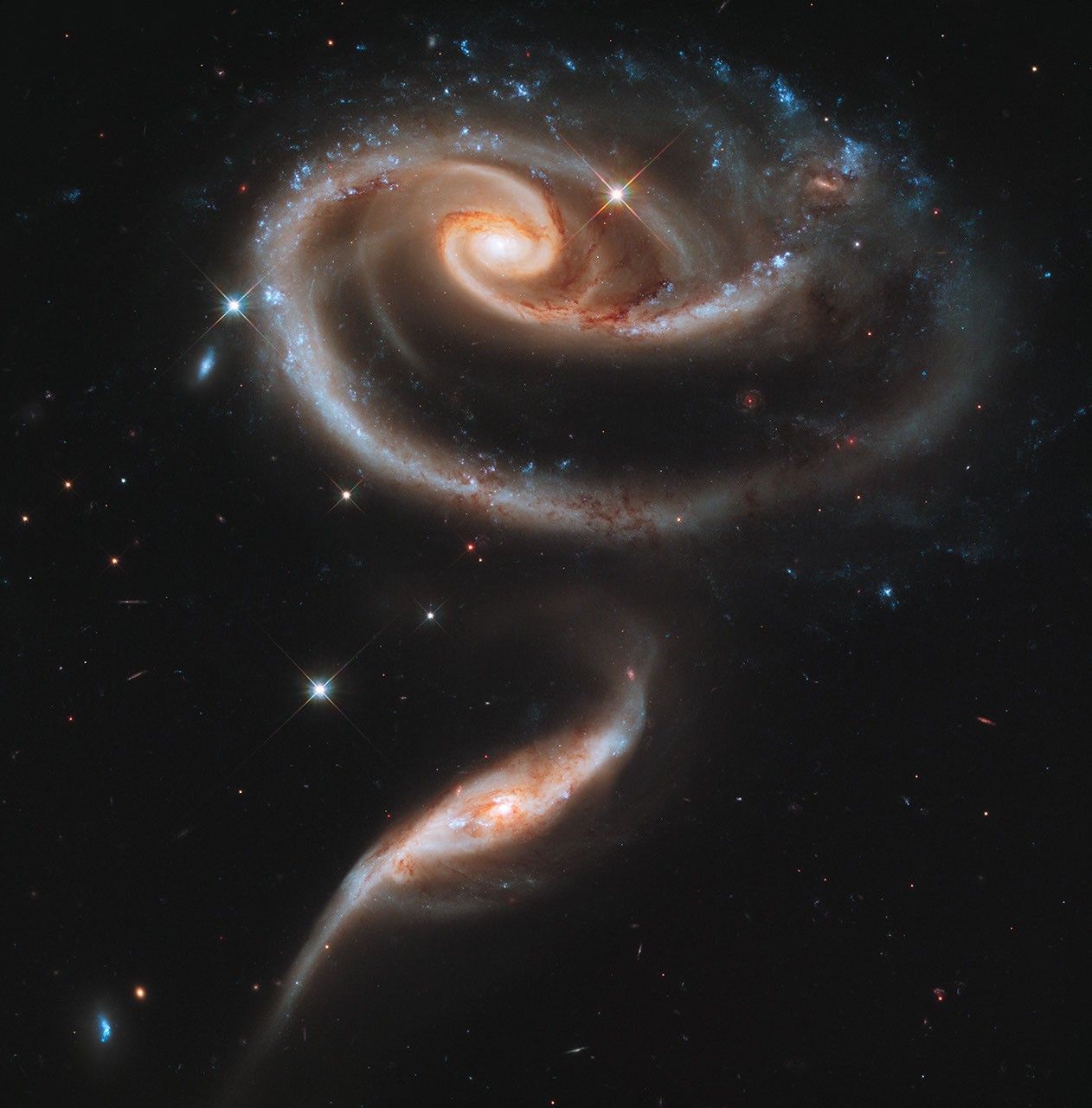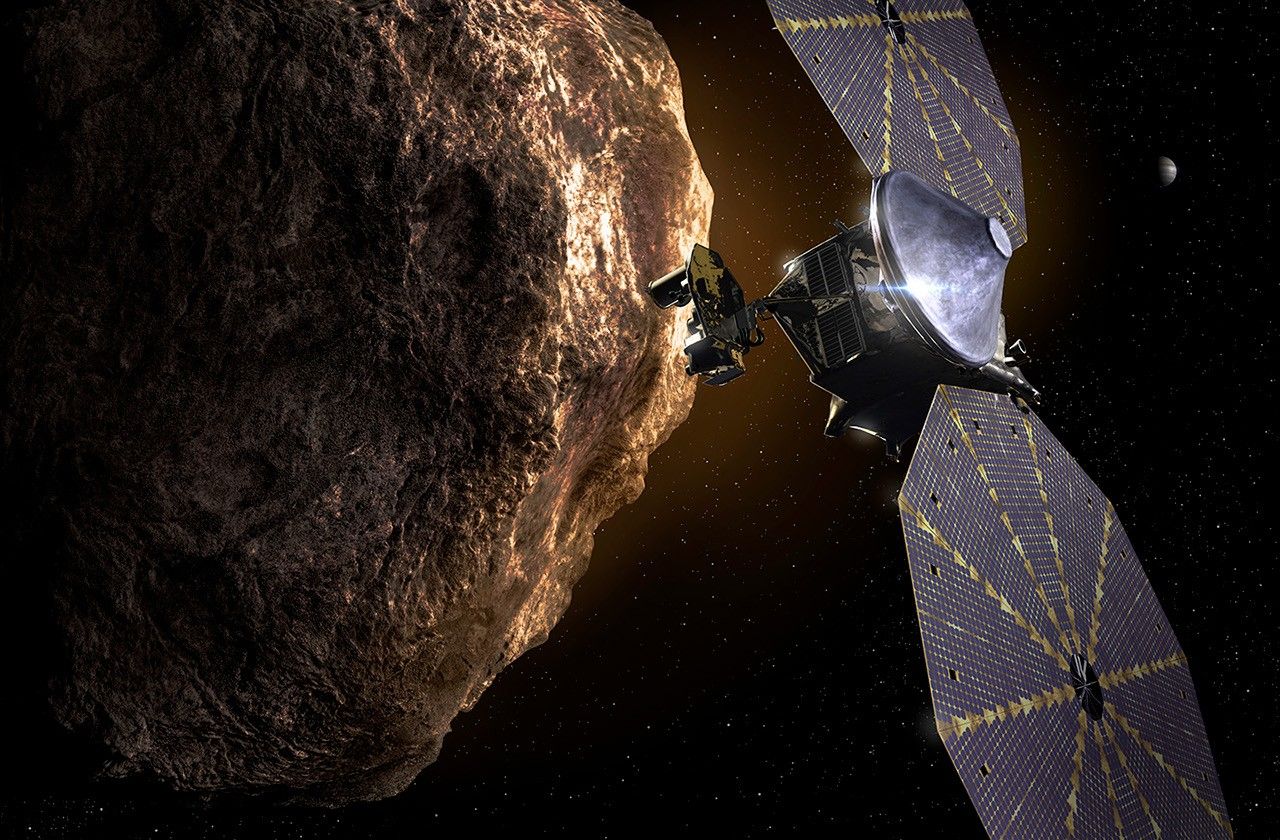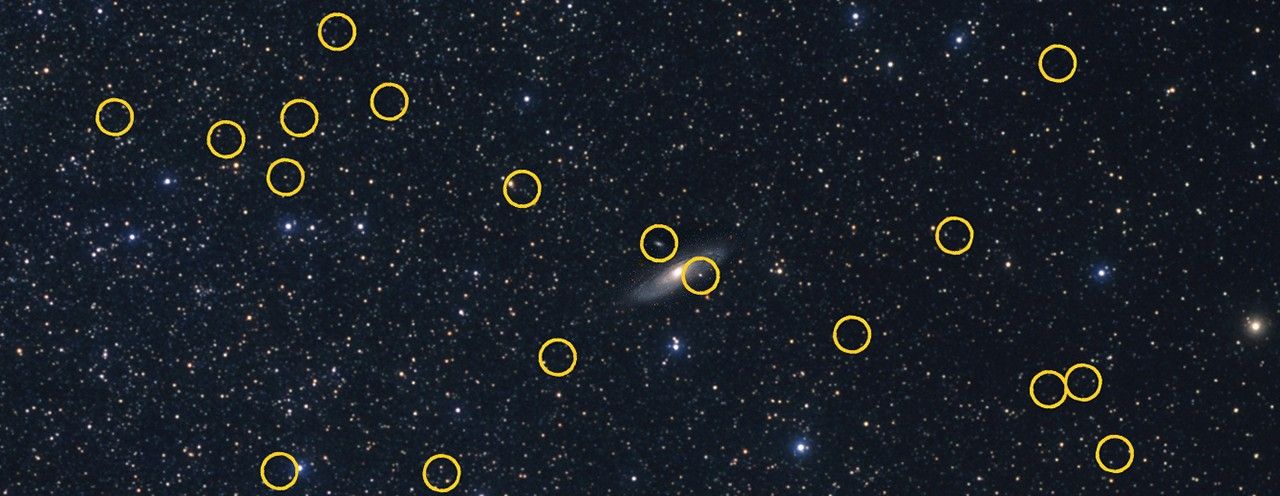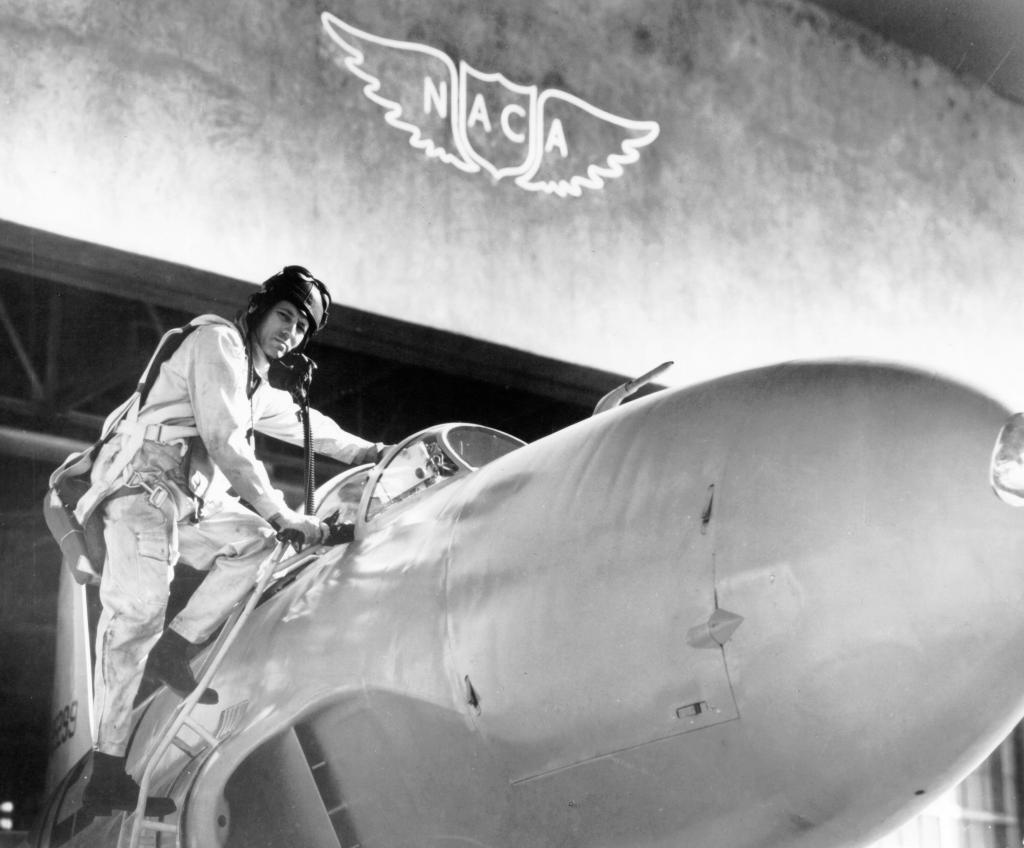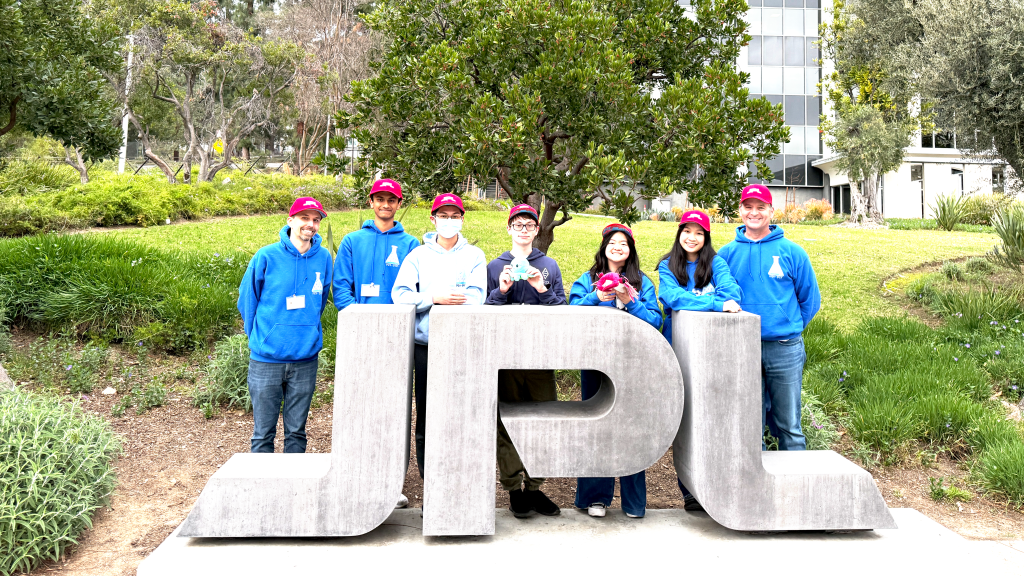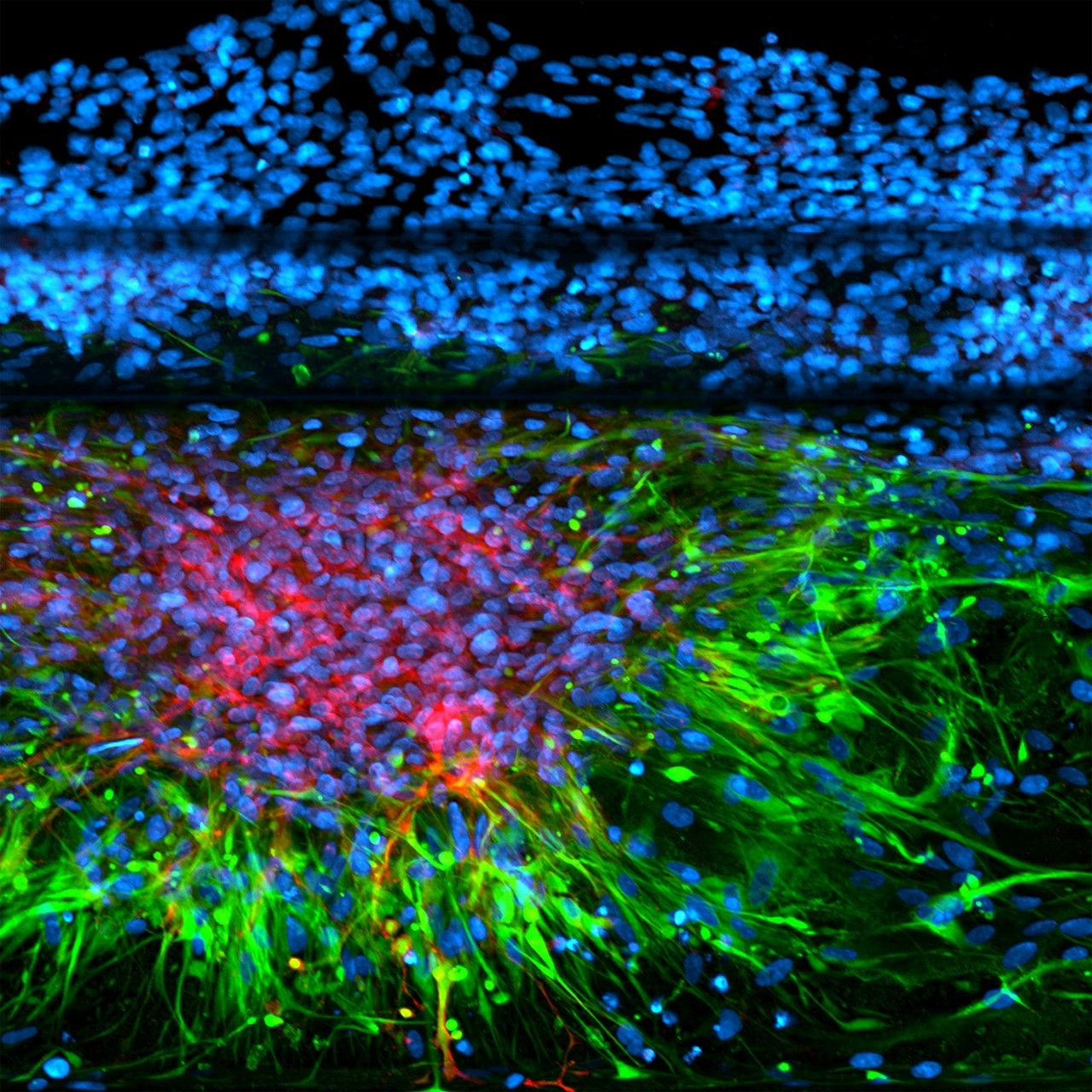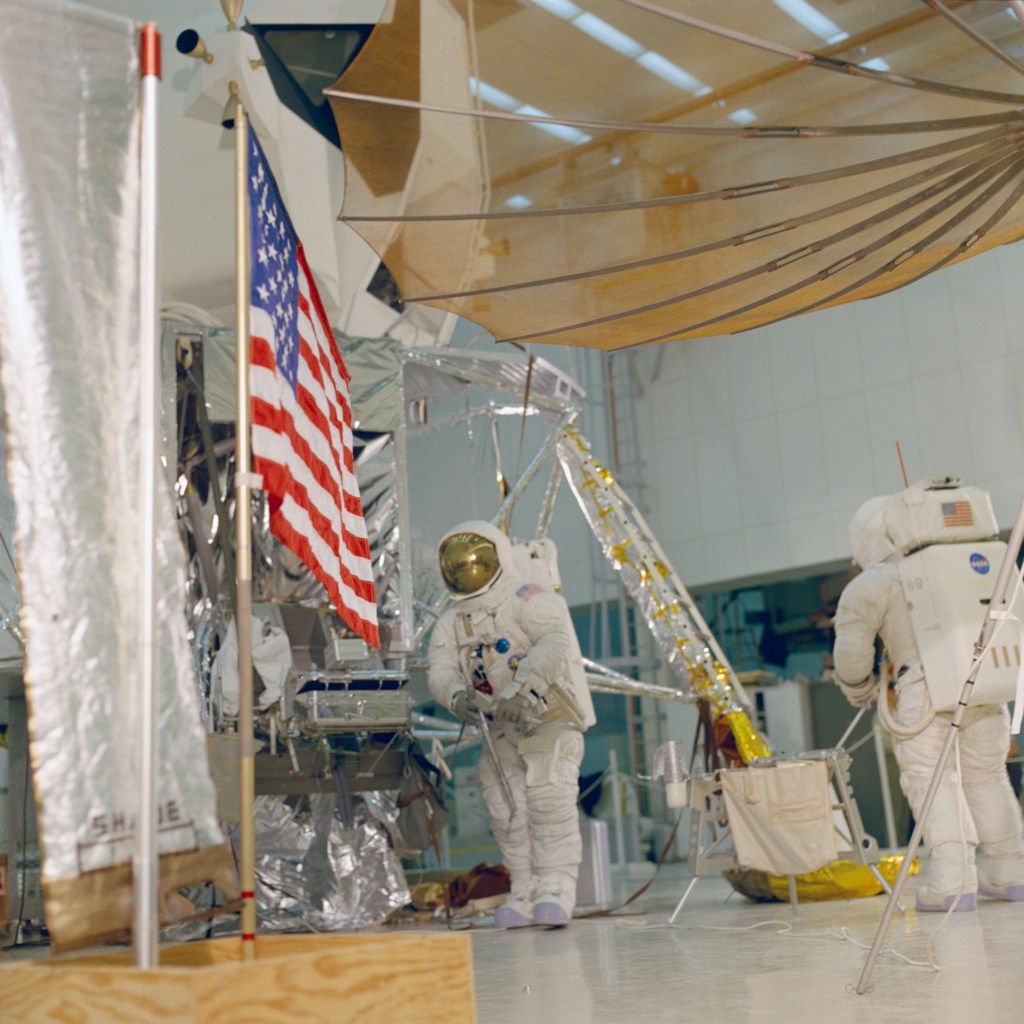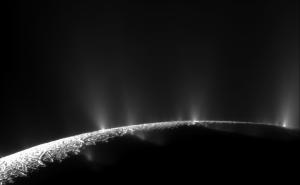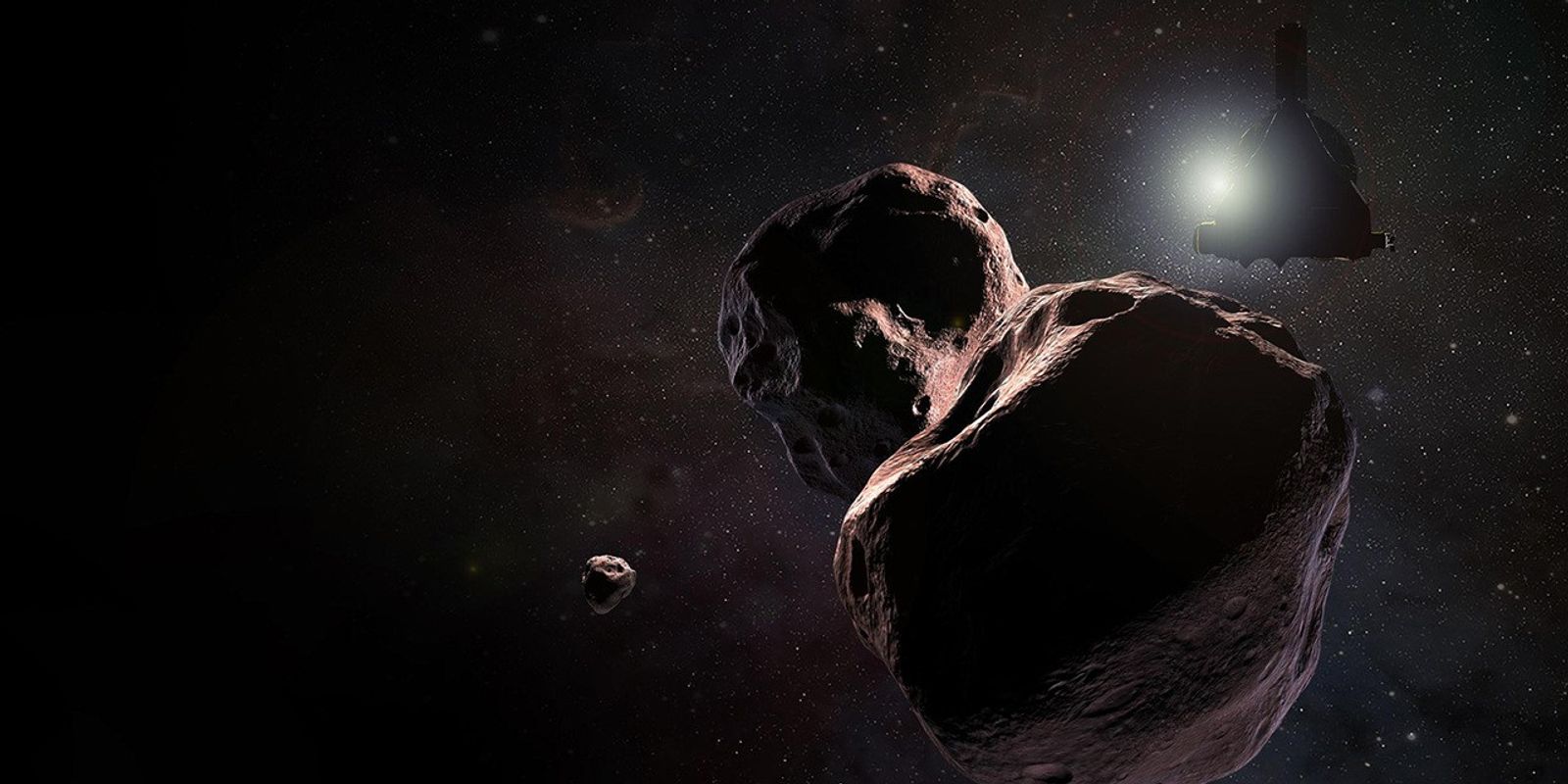The most recent spacecraft telemetry was acquired on Oct. 19 from the Deep Space Network tracking complex at Goldstone, California. The Cassini spacecraft is in an excellent state of health and all subsystems are operating normally.
The most recent spacecraft telemetry was acquired on Oct. 19 from the Deep Space Network tracking complex at Goldstone, California. The Cassini spacecraft is in an excellent state of health and all subsystems are operating normally. Information on the present position and speed of the Cassini spacecraft may be found on the "Present Position" page at: http://saturn.jpl.nasa.gov/mission/presentposition/ .
Wednesday, Oct. 13 (DOY 286)
This week's science included a number of observations by the instrument teams. Imaging Science (ISS), the Composite Infrared Spectrometer (CIRS), and the Visual and Infrared Mapping Spectrometer (VIMS) performed a 12.5 hour observation of faint rings at low elevation angles and high phase, and a 13.5 hour observation of Titan in order to study its atmospheric composition. VIMS performed a 14 hour observation of Dione, turned to Saturn to observe an atmospheric occultation using the star OmiCet, and observed the star alpHya for another atmospheric occultation. ISS took images of the south polar plume of Enceledus, collected several images of the moon Pallene, and also searched for possible Rhea rings by doing a sit-and-stare where one presumed ring ansa may be. The Ultraviolet Imaging Spectrograph (UVIS) performed an 8 hour auroral observation. The Cosmic Dust Analyzer (CDA) began a 44 hour interstellar dust campaign. ISS and CIRS performed another observation in the Titan monitoring campaign.
Thursday, Oct. 14 (DOY 287)
Orbit Trim Maneuver (OTM) #264 was performed today, setting up for the Titan 73 (T73) encounter on Nov. 11. The RCS burn began at 7:29 PM PST. Telemetry immediately after the maneuver showed a burn duration of 165.13 seconds, giving a delta-V of 0.178 m/s. All subsystems reported nominal performance after the maneuver.
A non-targeted flyby of Titan occurred today.
Friday, Oct. 15 (DOY 288)
Today marked the 13th anniversary of the launch of the Cassini Spacecraft.
The Mission Control, Data Management and Accountability and Spacecraft Analysis (MDAS) 5.0.5 Test Readiness Review (TRR) was held today. This delivery includes a fix that addresses the lack of notifications when valid telemetry red alarms occur within the Automatic Alarm Notification (AAN) software.
Saturday, Oct. 16 (DOY 289)
Non-targeted flybys of Polydeuces, Mimas, Pallene, Telesto, Methone, and Aegaeon occurred today.
The Pallene, Dione, Mimas, Rhea Live Inertial Vector Propagator (IVP) update was executed today.
Sunday, Oct. 17 (DOY 290)
Reaction Wheel Assembly (RWA)-1 low rpm test #1, the first of three planned tests, took place today. RWA-1 was set to +300 rpm for six hours and -300 rpm for six hours to characterize behavior at these wheel speeds. The results were favorable enough to consider lowering the minimum allowable wheel speed to +/- 300 rpm. The Spacecraft Office (SCO) is performing these tests in the S64 background sequence to help assess the cause of drag spikes which appear to be smaller at the lower rpm test wheel rate.
Non-targeted flybys of Dione and Rhea occurred today.
The command loss timer value was changed to 118 hours today in the S64 background sequence.
Monday, Oct. 18 (DOY 291)
As part of the ongoing task to transition the Distributed Object Manager (DOM) to the Network File System (NFS), testing of the JavaDOM scripts began this week. Setup of the DOM NFS Server is slated for completion by Oct. 25.
Cassini personnel began office moves within the Project area this week as a result of the downsizing the Project is undergoing to transition to the descoped Solstice Mission.
Tuesday, Oct. 19 (DOY 292)
A reaction wheel rest period took place today. Rest periods will continue to be implemented approximately every twenty days to allow for a possible redistribution of lubrication throughout the wheel bearing assembly. The last time this activity occurred was Oct. 3, when the wheels were turned off for a 3-day rest period during Solar Conjunction.
The S68 Engineering Activities Review took place today. At this review, Spacecraft Office personnel take a look at all spacecraft activities to be performed during the S68 sequence.
A neat picture of Prometheus moving through Saturn's rings is today's Astronomy Picture of the Day. To go to the image, link to:
http://antwrp.gsfc.nasa.gov/apod/ap101019.html
As of today, 77 essays have been received from 112 students from 12 classrooms in 9 states, including 2 homeschooled students, in support of the 2010 Cassini Scientist for a Day essay contest. Based on past contests, the majority of the essay entries are expected to be received within 48 hours of the contest deadline of Oct. 27. There are 28 countries participating in parallel contests worldwide. A poster about the essay contest has been accepted by the American Geophysical Union (AGU) for presentation at its conference on Dec. 14.
A feature story called "The (Long) Weekend Warrior: Nine Moons, 62 Hours" is available on the Cassini web site. It describes images taken by the Cassini spacecraft as it passed near nine Saturnian moons, sending back a stream of images over the weekend. The spacecraft sent back particularly intriguing images of the moons Dione and Rhea. The Dione and Rhea pictures contain the highest resolution views yet of parts of these moons' surfaces. For more information on this subject, link to:
http://saturn.jpl.nasa.gov/news/cassinifeatures/feature20101019/

